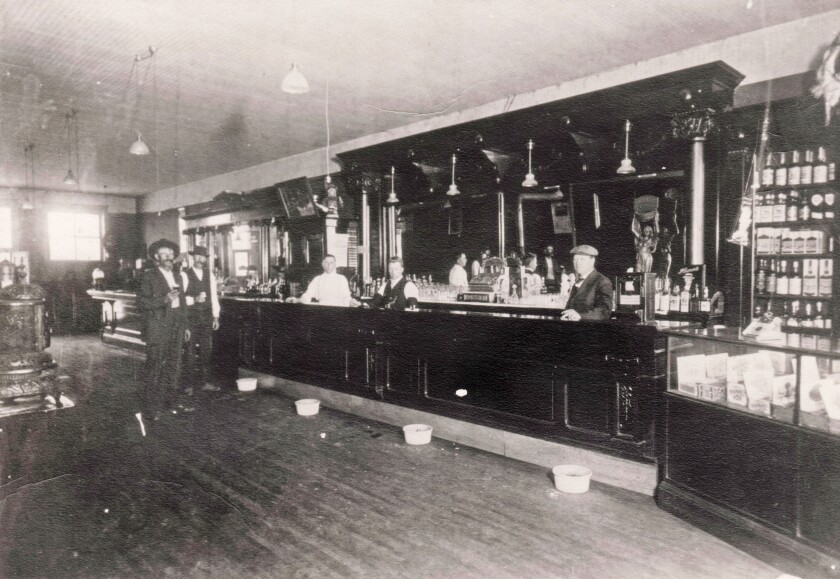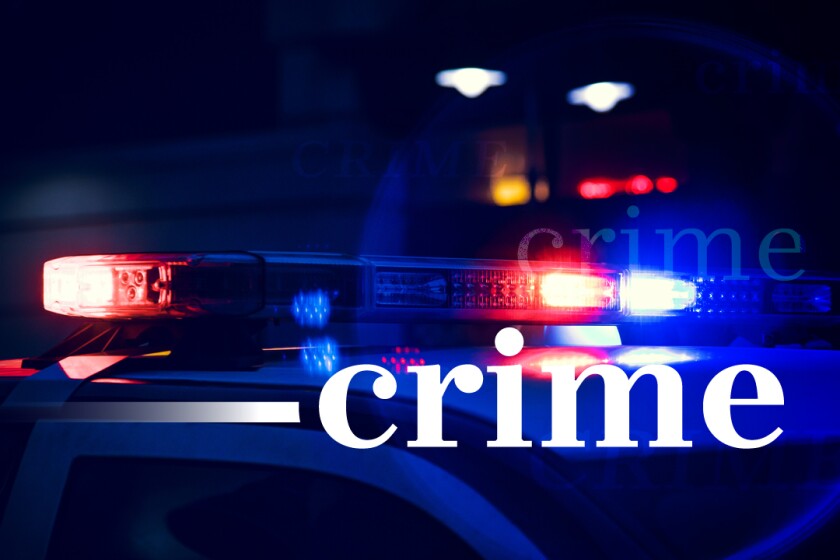ALEXANDRIA, Minn. — When U.S. Sen. Knute Nelson's daughter, Ida, married Anders Gustaf Nelson, she had no way of knowing he was a criminal with at least 17 convictions behind him.
About four months after the wedding, he would commit another crime.
ADVERTISEMENT
At first, he was charged with manslaughter, but this would be upgraded several months later to first-degree murder.
Anders Nelson (Americanized from Nilsson) was born in Sweden in 1867. An immigrant, he came to the United States in 1886, but returned to his home country approximately two years later.
Although it was alleged that he had committed crimes (including stealing a team of horses) in the States, it was here that his criminal career really took off.
According to the records of Husby Parish in Sweden, Anders Nelson was convicted of 17 crimes from April 1890 to June 1914. Many of these crimes involved fraud, although there were also crimes of violence, including aggravated assault.
Anders Nelson followed a pattern. He would commit a crime, get arrested and thrown in jail (often having to serve hard labor), then get released, only to reoffend shortly thereafter.
He returned to the United States in 1916, soon after the conclusion of his final Swedish prison sentence.
How Anders Nelson became involved with and eventually married Ida is not known, but suffice it to say, he most likely did not tell her of his criminal past.
ADVERTISEMENT
However, it wasn't long until his old habits resurfaced and he began offending in Douglas County.
These offenses seem to center around the family of Oscar Jacobson, who rented and worked on Knute Nelson's farm. At one point, Anders Nelson was fined $50 for assault and battery against Oscar Jacobson, and at another time, he was indicted for abusing Mrs. Jacobson, who was pregnant, saying, "I will kick that kid out of your belly," or something to that effect.
Eventually, Jacobson — a nephew of Knute Nelson — had enough and rented a farm in Hudson Township and prepared to move there.
Then on March 10, 1920, Anders Nelson saw Jacobson's cows and horses feeding in a straw pile outside their enclosure, got his shotgun, went back to the farm, and drove the horses and cows back to their enclosure.
Oscar Jacobson stepped into the hog house before Anders Nelson came up, leaving his 17-year-old son, Herbert, and hired man, Joseph Middleton, outside.
Herbert Jacobson later testified that Anders Nelson ordered him and Middleton to keep the gate of the enclosure shut.
The Park Region Echo reported: "In the course of the argument, Middleton grappled with Nelson trying to take his two-barrelled shotgun away from him. After jerking around a little while, the gun went off, shooting Middleton.
ADVERTISEMENT
"Nelson let go of the gun and Middleton, who had a hold of the muzzle, threw the gun at Nelson's head and hit him over the mouth, cutting Nelson's face and hands, as he threw up his hands to ward off the blow.
"Nelson's story is that Middleton took the gun away from him and hit him over the mouth with it and that this made the gun go off so that Middleton shot himself."
Middleton was struck in the upper right arm and died that night of his wounds.
A hearing took place that evening. After all the testimony was heard, the judge immediately and without any hesitation declared Nelson not guilty and ordered his release.
This did not sit well with the crowd that had gathered outside the courthouse.
Per the Echo: "Feeling was running high and at one time a rope is said to have been exhibited thru the window from the outside. The crowd refused to disperse and Justice (Edward P.) Wright made a grandstand speech to the crowd which made people madder than ever."
Anders Nelson said he wasn't afraid of the crowd and walked out of the building, only to be punched in the face as soon as he did. He soon ran back inside the building.
ADVERTISEMENT
More speeches from officials were made, but the crowd refused to disperse unless Nelson was taken back to jail, which was done, Nelson being charged with manslaughter in the first degree.
After he arrived at the jail, Anders Nelson refused to go into a cell, and his wife also tried to keep him from being locked up by stepping into the doorway of the cell right after her husband entered it, presumably thinking this would keep the door from being closed and locked.
It did not, and she reportedly spent the night in jail with her husband.
The amount of bail on which Anders Nelson was later released varied depending on which newspaper was reporting on it, but they all agreed the amount was in the thousands.
Although the judge continued to refuse to hold Nelson for murder, the Douglas County Grand Jury indicted him for murder in the first degree, and in September of 1920, he was found guilty by a jury and sentenced to 99 years at hard labor in the state penitentiary.
A motion for a new trial was made in November 1920 but was denied.
Eventually, arguments for a new trial were taken to the state supreme court, and this was granted in March 1921.
ADVERTISEMENT
The trial took place that June, and Nelson was again found guilty — but this time, he was only found guilty of manslaughter in the first degree, and he was sentenced to serve a term of five to 20 years.
Nelson applied for a pardon in September 1921, but this was denied.
The next year, it was announced that Nelson was eligible to apply for parole, but this action was also denied at the beginning of 1923.
In 1939, years after he was freed from prison, he asked for a full pardon to clear his name of the manslaughter charge, but this, too, appears to have been denied. He had long been divorced from Ida Nelson by this time.
Given the death of Joseph Middleton, it can be easy to forget that Anders Nelson had many other victims besides him, both in Europe and the U.S., not the least of whom were his wife and her father.
Some newspapers of the day took Middleton's death as an opportunity to take a few potshots at Knute Nelson, The New Ulm Review calling him old and senile.
The Park Region Echo's coverage was similar, pointing to the fact that Knute Nelson had made a speech in the Senate about the threat of immigrants spreading Bolshevism across the country, and now his immigrant son-in-law had killed somebody.
ADVERTISEMENT
This was unfair, if only because one person cannot be held accountable for the actions of another, especially those of a person they may not know all that well.
As for Ida Nelson, she was in a tough position. She could either stand by her new husband and catch the ire of those who thought he was guilty, or leave him and catch the ire of those who thought he was innocent.
In the end, she left and divorced him. If she had known about his criminal background, it's likely she would not have married him in the first place.
According to the Minnesota Death Index, Anders Nelson died in Otter Tail County on Nov. 30, 1949. He does not appear to have left any survivors.
— Thank you to The Douglas County Historical Society, Brittany Johnson, Taryn Flolid and Andrea Lundgren, who all contributed to the research for this article.



























